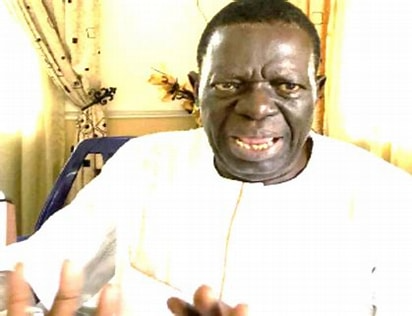
The Senior Special Adviser to the President of the African Development Bank on Industrialisation, Prof. Banji Oyelaran-Oyeyinka, has criticised Nigerian leaders for prioritising power over national development.
Speaking at the Aquinas College Old Students Association 2025 Convention in Akure, Ondo State, on Saturday, where he served as the guest lecturer, Oyelaran-Oyeyinka lamented decades of leadership failure in Nigeria.
In his lecture titled ‘Leadership and Nigeria’s Development,’ which was made available to PUNCH Online on Sunday, he reflected on how leadership choices had shaped the country’s progress, often to its detriment.
Quoting the former Premier of the Western Region, Chief Obafemi Awolowo, he stated, “Despite Nigeria’s vast resources, economic potential, and human capital, it remains one of the poorest and most underdeveloped countries in the world.
“It is generally agreed, and the fact stares us in the face that despite her enormous economic potentialities, Nigeria is one of the poorest and most underdeveloped countries of the world.”
According to Oyelaran-Oyeyinka, leadership in Nigeria has been all too often defined by the desire for power rather than responsibility, vision, and a genuine commitment to the people’s welfare.
He further explained that effective leadership should be founded on integrity, accountability, and the ability to inspire a nation to achieve collective goals.
“Yet, Nigeria has suffered from ‘Power Politics’ instead of the ‘Welfare Politics’ advocated by Chief Awolowo. This misdirected approach has perpetuated poverty, insecurity, and corruption, contributing to Nigeria’s downward spiral.
“Leadership is about doing the right thing,” the professor stated.
The professor cited Nigeria’s failed steel industry as an example of leadership failure.
He said, “Despite substantial investments, Nigeria’s steel plants became a cautionary tale of squandered resources.
“What should have been the bedrock of our industrialisation turned into a tragic failure of leadership.
“Billions of dollars invested in steel production were wasted, and Nigeria still spends over $4 billion annually importing steel products. Had Nigeria developed a robust steel sector, it would have created vital economic linkages, spurring growth in other industries.”
Oyelaran-Oyeyinka criticised the prioritisation of short-term political gains over national development.
He said, “The practice of perverse politics, which Awolowo described as Power Politics, has left Nigeria in a perpetual state of underdevelopment. Development requires a long-term commitment. Political elites have ignored the greater good in favour of self-interest.”
Outlining key challenges, he said Nigeria must address corruption, insecurity, economic diversification, and education and infrastructure reforms to progress.
He concluded with a call to action, urging the youth not to abandon Nigeria but to fight for its transformation.
“The youth should not abandon their country but strive and fight for this prophetic dawn of life abundant for all. Together, we can build a Nigeria that is not only prosperous but also a beacon of hope for the continent and the world,” he said.
